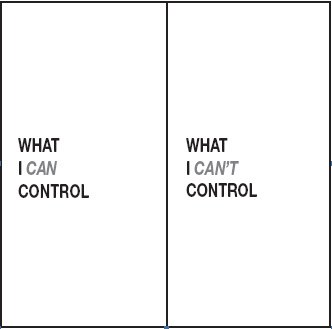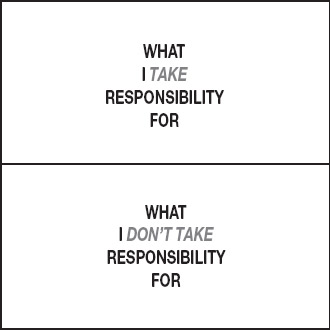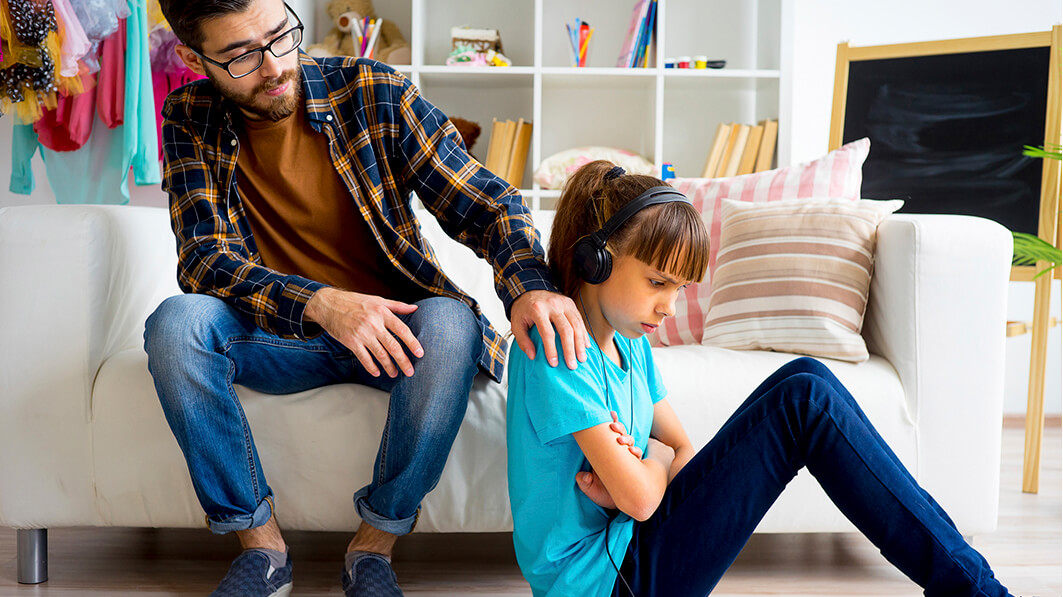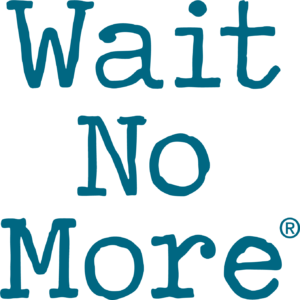Understanding the differences between control, responsibility and liability — and how those nudge parents to try controlling teens.
It’s true that contemporary culture makes your job as a parent more difficult. It’s true that your teenager holds this wild card called free will.
But parenting is still doable. You just need to know what you can control and can’t control.
Easy, right?
Well, no.
Lines can get fuzzy when your daughter has just stormed into her bedroom and slammed the door for the tenth time in one day. Or when your son calls to tell you he’s “slightly” dented the car on a badly located street sign — and it wasn’t his fault.
This article suggests how to draw some lines between “healthy” and “unhealthy” when it comes to control and your teenager. To understand these boundaries, you need to understand the terms control and responsibility.
Who’s in Control?
When it comes to raising teenagers, the world really can be split into two major categories:

Here control means to have direct and complete power over.
Given this definition, what in your life really fits into “What I Can Control”?
You probably will come up with only three things: me, myself and
I. That’s it. You can control yourself. You cannot control other people, though you may be able to influence them. You can’t control the weather or every part of any given circumstance. You just can’t.
But there’s always some piece of any given circumstance that you do have control over. It may not include as much control as you’d like or any control over other people. While you can’t control the situation, you can control your attitude and response.
If that’s all that fits into the “What I Can Control” category, guess what fits into “What I Can’t Control”?
Everything and everybody else.
That’s a whole lot — over six billion human beings, not to mention events and pets. One of those six billion humans you don’t have control over is your teenager. Knowing this is the starting point of losing control of your teen and liking it.
If the only things you can control are “me, myself and I,” guess who has control over your teenager? He or she does.
Whether your teen exercises wise control is a whole other topic. But it’s not your job to make sure (that is, control the outcome) that he or she turns out right. You can’t do it anyway, so stop trying.
Who’s Responsible?
Another way to categorize people and events is shown in the following diagram.

Responsible is a compound word: response-able, meaning “able to respond.” The only things you can legitimately respond to — the only things you can take “ownership” of — are the things you have control over.
This is not the same, by the way, as being liable. Liable means to be legally obligated to make good any loss or damage.
Consider this particular case.
Mark was a single parent with a 14-year-old daughter. She was extremely rebellious; that’s why he brought her to see me. Mandy refused to cooperate with anything her dad tried to get her to do.
One night as Mark was sleeping — expecting his daughter would be doing the same — Mandy snuck out of the house. She took Mark’s car, using a key she’d secretly copied weeks before from his backup set of keys. She drove to a friend’s house.
Mandy was not an experienced driver and managed to get into a fairly colorful fender bender with a stationary vehicle.
The police were called; reports were made. Mark ended up at the police station, dealing with the consequences of his daughter’s actions.
Now it’s quiz time.
Question One: Was Mandy’s “borrowing” the car something Mark could control?
Answer: No. For Mark, it belongs in the “What I Can’t Control” category.
“But wait,” you might say. “It was Mark’s fault, because it was his car. I mean, if he didn’t have a car, there would have been nothing for Mandy to ‘borrow,’ right? And if he didn’t have an extra set of keys, it would have been harder to make a copy.”
If you want to follow that logic — and we as parents often do follow a “logic” very close to this — then it was Henry Ford’s fault. He’s the one who mass-produced the automobile in the first place, at least in the U.S. If Henry hadn’t done that, Mark probably wouldn’t have had a car in the first place. Mandy wouldn’t have had a vehicle to “borrow.”
No, it isn’t Henry’s fault. It’s not Mark’s fault, either.
Question Two: Was the fender bender an action Mark was responsible for?
Answer: No. For Mark, it belongs in the “What I Don’t Take Responsibility For” category. How could Mark have “responded” to the imminent crash when he wasn’t even there? He wasn’t response-able.
Question Three: Are the owners of the other vehicle going to go after Mark to pay for the damages incurred?
Answer: Yes. Mark, as Mandy’s legal guardian, is liable. He is legally obligated to make good any loss or damage.
Mark can’t control Mandy. He isn’t responsible for the accident. But he’s held liable for the damage. This is an awful Catch22 for us parents, but there seem to be tons of those throughout the teenage years.
Being held liable, and feeling that society deems us responsible, many of us parents believe we must control our teenagers … somehow.
Don’t fall for it, and try not to subject other parents to it, either.
TIMOTHY L. SANFORD, MA, LPC


















 0800 200 362
0800 200 362 support@family.org.nz
support@family.org.nz Rangiora, 7400, New Zealand
Rangiora, 7400, New Zealand